Houston Rockets
Houston Rockets Salary Cap Update: The New CBA
Well, after nearly five months of acrimony and bickering (not counting all the time prior to July 1, when the NBA owners locked out the players), it looks like the National Basketball Association is about to re-open for business.
Published
14 years agoon
Well, after nearly five months of acrimony and bickering (not counting all the time prior to July 1, when the NBA owners locked out the players), it looks like the National Basketball Association is about to re-open for business.
As team executives and coaches start officially communicating with players for the first time since June, they will be doing so under substantially different salary cap rules.
Since I have neither the time nor the inclination to detail all of the intricacies of the new collective bargaining agreement (CBA) and how it compares against the prior CBA, I will let salary cap guru Larry Coon do the explaining for me. If you have not yet read Larry Coon’s breakdown of the CBA changes, it really is a must-read. Also, it may be helpful to read that piece in order to fully understand some of the changes below in players’ cap figures, qualifying offers and contract sizes that can be offered to free agents.
Let’s begin.
Salary Commitments and Potential Cap Room
The Houston Rockets will have a minimum of approximately $46.81 million in salary commitments to eleven players for the 2011-12 season: Kevin Martin ($11.52 million), Luis Scola ($8.59 million), Kyle Lowry ($5.75 million), Hasheem Thabeet ($5.13 million), Jonny Flynn ($3.41 million), Jordan Hill ($2.86 million), Terrence Williams ($2.37 million), Courtney Lee ($2.23 million), Goran Dragic ($2.11 million), Patrick Patterson ($1.96 million) and Chase Budinger ($884,293).
Add to that amount the rookie scale cap holds of the recently-drafted Marcus Morris ($1.52 million) and Donatas Motiejunas ($1.13 million) (the new CBA has temporarily frozen first round rookie scale salaries at 2010-11 levels for similarly drafted players; second round picks like Chandler Parsons still do not count against the cap until signed); and each of Marcus Cousin and Marqus Blakely is set to earn $762,195 (under the new CBA, all league minimum salaries have been temporarily frozen at 2010-11 levels) if they manage to remain on the roster into next season. Chuck Hayes, the Rockets’ lone remaining (non-retired) free agent, will have a cap hold of about $3.75 million (the new CBA has reduced certain cap holds, resulting in a slight reduction in the Chuckwagon’s).
Based on this season’s salary cap figure ($58.044 million, at which the salary cap will be artificially set for this year and next before resetting based on the new BRI split), in order for the Rockets to maintain rights to all of its players, they will have approximately $3.31 million in salary cap room.
However, given that the compressed free agent signing period is expected to commence simultaneously with the opening of training camps, there will probably be some minor adjustments to this figure. While Motiejunas will continue to play in Poland this season, the Rockets will likely need to sign Morris and Parsons quickly in order to get them into training camp. Morris will command the typical 120% of his rookie scale salary (or $1.82 million, the same salary that Patterson got last season). Parsons is allegedly forcing his way into training camp by refusing to play overseas, meaning that the Rockets will need to either invite him to training camp (and offer him a contract) or release him outright; hence, Parsons will likely get either a minimum deal (for $473,604) or perhaps even a Budinger-like deal using a sliver of the Mid-Level Exception (for purposes of this piece, let’s assume he just gets the league minimum). Accounting for these timing issues, the Rockets’ cap room may be reduced to approximately $2.53 million.
Daryl Morey and the Rockets currently face a tough decision regarding whether or not to re-sign Hayes. After a career year for the Chuckwagon (one in which the rest of the league finally took notice of Hayes’s ability to impact games on both ends of the floor), Hayes’s agent has already received several contract offers from other teams, including one from the Sacramento Kings (who play near Chuck’s hometown of Modesto). On the Rockets’ end, Morey must balance the value he places on Hayes (it is no secret that the Rockets value Chuck more than just about any other team would) against the Rockets’ desire for maximum salary cap flexibility going forward. A reasonable long-term deal for Hayes can still be worked out (it appears that Chuck is not interested in a one-year deal, even if the Rockets offer to make it a lucrative one); but the odds are against Morey re-signing him if his contract demands exceed a certain (relatively low) threshold.
Assuming that (1) none of the recently drafted rookies are waived (a likely bet), (2) Cousin and Blakely are waived (both contracts are fully non-guaranteed, except that Blakely’s deal becomes partially guaranteed for $25,000 if he’s on the roster at the start of the regular season), (3) Hayes’s rights are renounced (or Chuck signs with another team), and (4) no other trades or roster moves are made, then the Rockets’ cap room with the current roster (not playing overseas) all under contract would increase to approximately $7.8 million, subject to an additional increase should Morey elect to use the new “amnesty” provision on a current Rockets player.
2011 Free Agency . . . or “To Amnesty or Not to Amnesty”
With the aforementioned $7.8 million cap room figure, Morey would be able to keep the roster intact while offering a free agent a contract as large as a four-year, $33.34 million deal. However, that won’t be enough to nab one of the top free agents like Nene or Tyson Chandler.
However, if a top free agent were truly willing to sign with the Rockets if the team could meet his demands, the Rockets could use the amnesty provision to waive Thabeet–allowing the team to wipe his salary off the books for cap and luxury tax purposes–and greatly increase their available cap room. (Of course, Les Alexander would still need to pay Thabeet every penny of the $5.13 million he is owed this season.)
If timed correctly, the Rockets could conceivably use the amnesty provision to waive Thabeet and, if combined with a delay in signing their rookies, could open up as much as $13.71 million in cap room and be able to offer a deal as large as four years, $58.54 million. These numbers could possibly increase even more with some minor trades to open up additional cap room.
While Morey appears to be capable of opening up enough cap room to at least legitimately contend for any top 2011 free agent, the odds are against him actually doing so. As Morey himself stated recently, he was unwilling to make a move that may help in the short term if it would ultimately hinder the franchise over the long term. Signing a very good–but not great–player to a near-max contract could potentially prevent the Rockets from being able to earnestly pursue a superstar in free agency or in trade.
I suppose that the Rockets could sign a major free agent to a sizable but moderately reasonable contract, either to keep for the long haul or to use in a later trade. Teams like Orlando (Dwight Howard) and New Orleans (Chris Paul) may be interested in a player like Nene if the Rockets were to include him in a package for such teams’ superstars.
When it’s all said and done, the likely result of the 2011 free agent frenzy will be that the Rockets make no significant additions via free agency. More likely, Morey will opt to preserve the team’s salary cap flexibility for 2012. In fact, I imagine that the Rockets will opt not to have any “cap room” at all.
By opting not to use cap room, the Rockets will instead preserve the use of (a) their Bird rights on Hayes (and on retired players like Yao Ming, Dikembe Mutombo and Warriors coach Mark Jackson), (b) the $5 million Mid-Level Exception, (c) the $1.9 million Biannual Exception and (d) existing trade exceptions (most notably, the $7.35 million trade exception generated in the Battier-Thabeet trade last February).
Given that the above rights and cap exceptions should give the Rockets more flexibility, my sense is that–unless Nene or Chandler are willing to come to Houston on a fairly reasonable contract–Morey will set his free agent sights towards 2012.
Amnesty Bargain Bin?: Risks & Rewards
Another potential avenue available to the Rockets for a roster upgrade may be through the “amnesty waiver wire.” Larry Coon has the details regarding the amnesty clause of the new CBA in his article referenced above. It is the waiver process resulting from casualties of the amnesty clause’s implementation that I will focus on here.
Once a player has been waived using the amnesty clause, he becomes subject to a modified waiver process. This process is only open to teams with available cap room (as opposed to over-the-cap teams with salary cap exceptions still available for use), avoiding the loophole of having good players–whose salaries are already being paid by other teams–signing for little money with over-the-cap contenders.
A team claiming any such player must still claim his entire contract; but rather than requiring that team to pick up the waived player’s entire salary, the claiming team may instead make a bid offering to pick up only a certain amount of the player’s salary. The under-the-cap team with the highest bid will be able to claim the waived player, and only the waiver bid claim amount of that player’s salary will count against the claiming team’s payroll and for salary cap and luxury tax purposes. The waiving team will then be partially relieved of the obligation to pay the waived player’s salary to the extent of the waiver bid amount.
As mentioned above, the Rockets may have a hard decision to make about whether to opt for use of their cap room or to maintain their salary cap and trade exceptions, especially if Hayes signs with another team. Assuming that the team did not opt to create cap room to sign any outside free agents for this season, if there is a player available on the amnesty waiver wire who can significantly help the Rockets, Morey might be willing to opt for cap room and make a waiver bid on that player.
But therein lies the risk. The details of the new CBA have not yet been reached on what happens to a team that makes certain moves to get under the salary cap (i.e., renouncing rights to free agents, waiving salary cap and trade exceptions, and possibly even amnesty waiving a player of its own) in order to place an amnesty waiver bid on a player but then gets outbid for that player by another under-the-cap team. Would the Rockets be left without all of the above, with no process by which to reclaim those players’ rights and cap exceptions? This will color any decision that Morey makes to pursue such waived players. And given Morey’s unwillingness to overpay, it is likely that another team will (perhaps foolishly?) outbid the Rockets on the amnesty waiver wire.
However, if it is any consolation, there are expected to be far fewer players actually waived this season via the amnesty clause than originally expected, with several teams either preferring to keep the amnesty in their pockets for a later date or (like the Washington Wizards with Rashard Lewis) needing to keep some high-salaried players on their books in order to meet the increased team minimum salary.
Trade As Most Likely Avenue for Improvement
Regardless, the most likely avenue by which Morey will look to improve the Rockets’ roster will be via trade. Rest assured that the Rockets will be among the many suitors for Howard, Paul and New Jersey Nets guard Deron Williams. While the Nets have no interest in trading Williams (for whom they recently gave up a veritable treasure trove of assets), there is increasing speculation that, due to some of the quirky new CBA rules, Orlando and New Orleans may actually entertain trades for their respective superstars as early as the next two weeks.
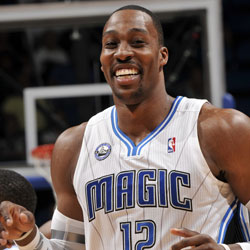
Dwight Howard, a potential free agent in 2012, could be one of the prizes of the 2011-12 trade season
Morey will be armed with the following (non-exhaustive list of) assets at his disposal:
–A shooting guard who finished in the top 10 in the league in scoring last season (Martin);
–A 25-year-old point guard who is great defensively, draws fouls and has continued to show marked improvement year to year (Lowry);
–A rock-solid veteran power forward who is an “NBA-young” 31 years old (Scola);
–Promising and highly regarded young talent (Lee, Dragic, Budinger, Patterson, Morris);
–Some “diamonds-in-the-rough” who can be obtained as throw-ins (Thabeet, Flynn, Hill, Williams, Parsons);
–New York’s 2012 first round pick (only top-5 protected), which is attractive despite the Knicks’ star duo because of the rare limited protection on the pick;
–Minnesota’s 2012 second round pick (which may be a high second round pick that proves more valuable than many late first rounders);
–Some nice young talent playing overseas (Motiejunas, Sergio Llull, Lior Eliyahu); and
–Some trade exceptions capable of absorbing extra “dead weight” salary from the other team (the Battier TPE being key here).
The Rockets’ pursuit of major trades should be helped by the new CBA’s relaxation of salary-matching rules for non-taxpaying teams (even though the Rockets paid a small amount of luxury tax last season, I don’t believe that will prevent them from benefiting under the new trade rules this season). Under the new CBA, teams with total salaries below the “luxury tax apron” threshold (approximately $74 million) can take back the lesser of (a) 150% of outgoing salary plus $100,000 or (b) 100% of outgoing salary plus $5 million. (Tax-paying teams are restricted to the prior limitations of 125% of outgoing salary plus $100,000.) Look for Houston to take full advantage off these new relaxed salary-matching restrictions, as payroll relief for the other team will be a key factor in the Rockets’ ability to acquire a star player via trade.
One trade asset that the Rockets will have less of this trade season is cash. Contrary to popular belief, Les Alexander has been among the NBA owners most willing to throw in cash in order to get a deal done. However, under the new CBA, teams may not include or receive more than $3 million in cash in trades in the aggregate during any season (the prior rule allowed teams to include up to $3 million in cash in each trade). Should an opportunity to acquire a supestar like Howard via trade present itself, the Rockets would be unable to break a larger deal into separate trades in order to pay more than $3 million in cash. Furthermore, assuming that the Rockets include most or all of their allotted $3 million in cash in one or more trades during or immediately after the 2011-12 season, Houston’s usual strategy of seeking out draft picks to purchase outright will be greatly hampered.
While Houston may not have quite the same caliber of assets that the Los Angeles Clippers sport (most notably, Eric Gordon and Minnesota’s unprotected 2012 first round pick), the Clips can only put ONE deal together that would clearly beat out anything the Rockets could offer. The Rockets should be able to compete with just about any other team in the race for a superstar via trade, due to the sheer quantity of attractive trade chips they possess. (Something that the media has failed to clarify about the Nets’ purported trade offer of Brook Lopez and two first round picks for Howard is that all of the Nets’ GOOD draft picks were already traded to Utah. The Nets only have the Rockets’ lottery-protected pick and the Nets’ own picks, none of which should be any good if the Nets successfully pair Williams with Howard.)
2012 Cap Situation
Given the many unknown variables that could change quickly once the league opens for business on December 9, it makes little sense even to speculate on where the Rockets might stand come July 1, 2012. That said, early indications are that Houston could have upwards of $22 million in cap room while still retaining Martin, Scola, Lowry, Patterson, Morris, Budinger and Motiejunas. (Of course, this figure would need to be reduced to account for Houston’s 2012 first round picks and any other players returning from this season’s roster.)
Moreover, if the opportunity presented itself to be able to add Howard AND either Paul or Williams next summer, there should be some opportunities to trade–or, if all else fails, to amnesty cut–a high-salaried player in order to add two superstars. That’s not a slam dunk by any stretch. Just a remote possibility.
Courtney Lee and The New Age of Restricted Free Agency
One key variable to 2012 cap room will be how the Rockets choose to handle Courtney Lee, who may be the current Rockets player most affected by the new CBA in the next year due to the player-friendly changes to restricted free agency.
If Lee is still on the roster by the end of next season, look for the Rockets to try hard to retain him. They’ll likely have plenty of competition for Lee’s services, however, as many teams hold Lee in high regard as a potential starting shooting guard.
Lee (much like Hayes this year) will have a lower cap hold next summer under the new CBA, with his cap figure being reduced from $6.6 million (under the old CBA) down to $5.5 million.
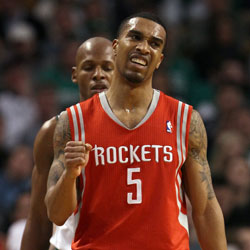
Courtney Lee may be the first Rocket affected by the changes in restricted free agency under the new CBA
If Lee’s market value increases high enough, the Rockets may be forced to choose between him and Martin; or they could try to convince a major free agent to take a slight pay cut in order to retain Lee (as Dwyane Wade, Lebron James and Chris Bosh did last year in order to allow the Miami Heat to re-sign Udonis Haslem).
Remember, even if Lee is worth, say, $9 million per year, the Rockets could keep him at his $5.5 million cap hold figure while signing a superstar, and then re-sign Lee to the higher figure afterward. Conversely, if Lee is only worth $4 million per year but the Rockets want to retain him, the Rockets would want to first sign Lee (thereby reducing his cap figure from $5.5 million down to $4 million or less) before signing any outside free agents.
How the Rockets approach whether to retain Lee in the face of a potentially stellar 2012 free agent class is further complicated by recent changes to how qualifying offers can be made to restricted free agents. Under the old CBA, teams could simply extend non-guaranteed qualifying offers in order to make a young player a restricted free agent, knowing that, if they later decided that they wanted to allocate that money elsewhere, they could simply unilaterally pull that offer off the table.
Not anymore. One of the bigger player victories in the CBA negotiations is that teams must now fully guarantee their qualifying offers.
What this means for the Rockets is that, if they want to retain Lee’s rights as a restricted free agent, they must occupy a portion of their cap room with Lee’s $5.5 million cap hold by making a guaranteed qualifying offer that cannot be taken off the books without Lee’s consent (unless he first signs a contract with Houston or another team).
If the Rockets do not make a qualifying offer to Lee (and thereby reduce their available cap room), then Lee will become an unrestricted free agent. Given the widespread interest in Lee, though, I’m not sure the Rockets want to risk losing him without at least having the opportunity to match any reasonable offer.
Another aspect of the new CBA is that certain young players who outperform their rookie deals will be entitled to larger qualifying offers. Players who average 41 starts or 2,000 minutes played in the last two years of their rookie deals will be entitled to (a) if the player is drafted in the first round but outside of the lottery, the qualifying offer available to the #9 pick from that draft and (b) if the player is not drafted in the first round, the qualifying offer available to the #21 pick from the player’s draft class.
Based on his production last season, if Lee starts in every game or plays heavy minutes this season (27.7 mpg if he plays in every game, with this threshold increasing for each game he misses), then his qualifying offer will presumably increase from $3.22 million (the offer available for his rookie scale slot) to $4.39 million (the offer available to the #9 pick in 2008).
Conclusion
While the Rockets have afforded themselves the flexibility to sign a major free agent in 2011 if needed, the likely outcome of the next month or so will be that the Rockets largely sit out free agency and either make an early trade or two for a talent upgrade or sit tight for a later trade or to pursue free agents in 2012.
There is no guarantee that the Rockets’ trade strategy will actually land them a superstar. But it puts them in as good a position as (almost) any other team to do so.
Flexibility is the key. And Morey has that in spades right now.
>> Comments
DISCLAIMER: Please note that all views expressed on the new CBA are solely based on that certain Summary of Principal Deal Terms dated November 26, 2011 and distributed to the media by the NBA (the “League Memo”). The League Memo is not a comprehensive collective bargaining agreement, does not address many key issues that may affect the new CBA and may be subject to change.
Houston Rockets
Looking Back on the Trade for Phoenix’s Draft Picks
Are the Rockets set to cash in on Phoenix’s downfall or could a Suns retool murky the waters?
Published
4 months agoon
March 12, 2025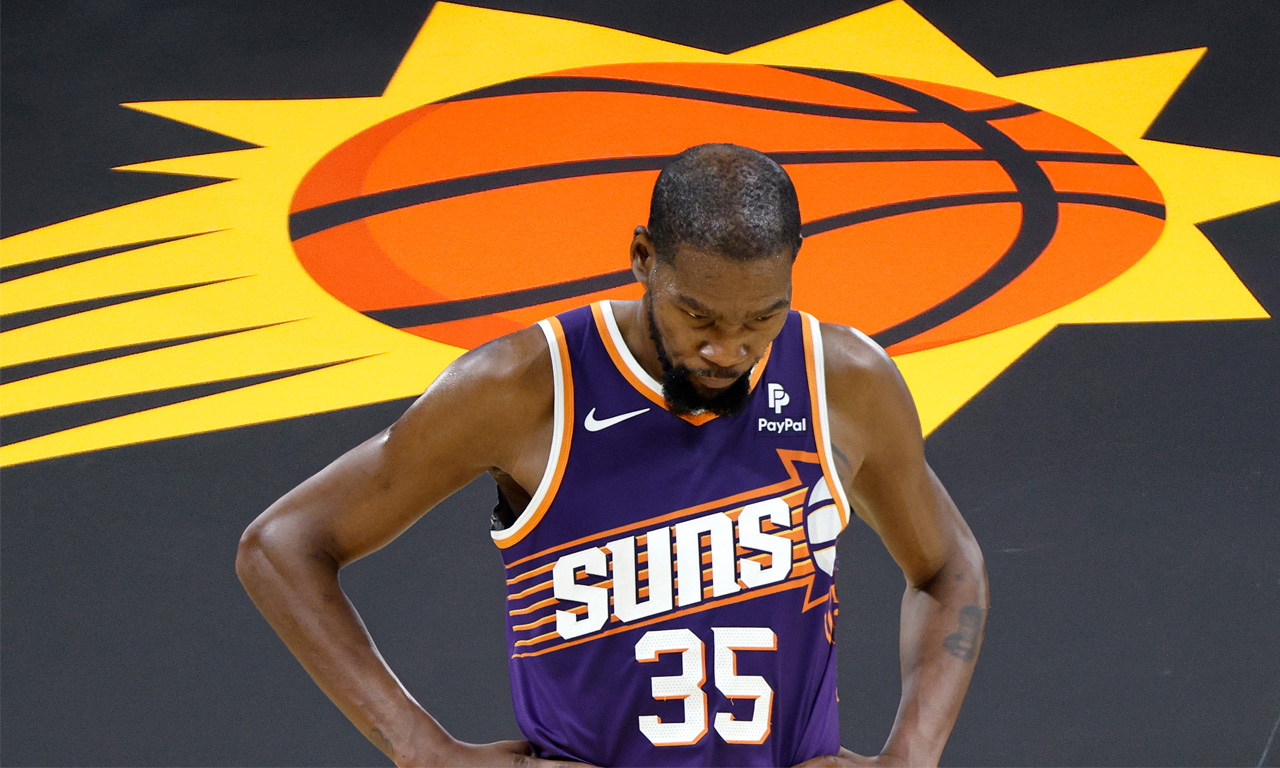
As the Houston Rockets set to host the Phoenix Suns tonight, it seems the right time to take a look back at the trade that linked these two franchises together for the foreseeable future.
This past June, the Rockets made a trade with Brooklyn that sent back to the Nets control of their 2025 and 2026 unprotected first-round picks. In exchange, the Rockets received a large chunk of Phoenix’s future (2025, 2027, 2029) and control of the Dallas Mavericks’ 2029 first.
In essence, the Rockets traded one pick and one swap for two picks and two swaps. All unprotected.
Thoughts At The Time of the Trade
If I’m going to discuss the current outlook of this trade, I have to be honest about how I saw it at the time of the move. While I didn’t hate this trade initially, I definitely didn’t love it either.
I liked that the Rockets increased their overall trade assets. I also liked that they extended the timeline to be able to make a bigger trade and I also appreciated that they kept control of the 2027 Brooklyn swap.
But I didn’t like that the Rockets gave up what seemed like the more established value (Brooklyn) for a more uncertain gamble (Phoenix). The Rockets did not control a “tanking runway” of picks to offer back to Phoenix — all of the picks Houston got in the deal were in staggered years (’25, ’27, ’29). I also felt Brooklyn, who badly needed to rebuild, got away with paying market value to get their picks back despite the fact that the Rockets invested years in watching those picks appreciate up to the point that they had the Nets completely over a barrel.
Net-net: I felt like more certainty was traded for less certainty and it was more of an equitable trade for both teams rather than Brooklyn paying dearly to get back the things only the Rockets could offer.
There were two ways I thought this trade could pay dividends: The Suns needed to flame out immediately, as in this season (unlikely), or the Rockets could trade all those pick assets as part of a deal for a real superstar in the next 12-18 months (more likely).
In a testament to how quickly change can occur in a very unpredictable NBA, four things have happened that have been positive indicators for the Rockets in making this move.
The Suns are fading
While Phoenix had major salary cap issues, dealing with the second apron, they didn’t appear to have problems on the court. They jumped out of the gate 8-1 and looked like a legitimate contender behind their star trio of scorers in Kevin Durant, Devin Booker and Bradley Beal.
Given Houston controlled Phoenix’s pick this year via a swap, it looked like the Rockets would come up empty-handed on the trade this season.
That changed quickly.
Injuries, serious depth concerns and a lack of a defensive identity has sent Phoenix spiraling. Booker’s availability has been inconsistent, forcing Durant to carry the load, while Beal has not quite fit in at all. Their financial limitations, thanks to owner Mat Ishbia’s all-in spending spree, have handcuffed their ability to improve the roster around the three stars.
The Suns are sitting 11th in the West, having gone 22-34 since that hot start, and are currently trying to catch a depleted Dallas squad to get back into the play-in picture.
As of right now, the Rockets project to end up with a lottery pick (albeit a late one) this season out of the trade.
Phoenix was caught shopping Durant
Because the Suns struggled so hard after the start, they tried to make a major move at the deadline but could not unload Beal, in large part due to his no-trade clause.
As a result, they may have made a misstep: They openly tried to trade Durant, which inevitably became public news.
Now? Durant will almost assuredly be traded this summer — likely to a destination that he handpicks. This means the Phoenix Suns will have to look at all possibilities for their future, including potentially having to give Rafael Stone and the Rockets front office a call.
But keep in mind, the Rockets can not offer Phoenix the ability to completely rebuild via the draft right now. Phoenix’s 2026 pick is controlled by Washington. They would have to get extremely creative to set that stage. A retool in Phoenix is much more likely.
Could Brooklyn have been better than expected?
This one is tougher to gauge.
The Brooklyn Nets are currently tied for fifth-worst team in the league, giving them strong lottery odds this summer. This was expected. After all, the Nets, even with a healthy Mikal Bridges and a full roster, were not a good team last season, closing the year 20-41 in the final three quarters of the season. The Rockets ended up with the #3 pick (Reed Sheppard) as a result of Brooklyn’s mediocrity.
However, if the Rockets had not placed that pick back in Brooklyn’s hands, would the Nets be better than this?
Brooklyn brought in a new coach in Jordi Fernandez that has had a positive impact. They have dumped off players, such as Dennis Schroeder and Dorian Finney-Smith, that impacted winning. The bar to make the play-in in the East (.415 winning percentage) is obscenely low, with Brooklyn being just five wins away from it at the moment.
And on top of that, Brooklyn did have lots of draft capital that they could have moved to try to win now.
It’s very tough to say as you don’t know if a team with Bridges still in Brooklyn might have actually been worse than this current squad, but you could make a case that the pick the Rockets would have ended up with from Brooklyn this season would be eerily similar to the one they will end up getting from Phoenix this year.
Again, this is a tough call.
Nico Harrison Hooked the Rockets Up
As part of the trade, the Rockets got control of the Dallas Mavericks’ 2029 first-round pick (unprotected, of course). While there’s really no way of knowing what a pick will be five years out, we did know that Luka Doncic would be just 29-30 years old that season and it was fairly etched in stone that he would be the core piece of a Dallas squad that season.
Enter chaos in Dallas.
Doncic was shipped out in the trade that shocked the world, which could have a major impact on the Rockets. Dallas’ current core of Kyrie Irving and Anthony Davis will be 37 and 36 years old that season, respectively.
On paper, the value of that pick shot up.
Final Summary
Right now, the outlook on these picks looks strong. One source stated off the record that they feel the 2029 Phoenix pick is the best pick asset out there that is owned by another team. The Rockets would be reluctant to add that one specifically into any trade unless it’s for a truly legitimate star.
But if there is any lesson that the NBA teaches us over and over again, it’s that it’s very hard to predict where a team will be a year from now, much less three years from now.
Can the Rockets pressure Phoenix and leverage the ownership they have of their draft capital to get what they really want (Booker) from them? Could a Suns retool around Booker and Beal, with the right pieces and assets acquired from a Durant trade, significantly change their on-court outlook and cap sheet — which in turn could damage the value of the picks Houston controls?
Bottom line is it has worked out well this season, and the future forecast at the moment is promising. The current value of those future picks appears strong. What will likely determine history’s final grade for this trade will be how it sets them up for the trade to come, and that’s where fans will be looking to Stone and the front office for action starting this summer.
Houston Rockets
Amen Thompson’s ankle injury will be re-evaluated in one week
“The things he does you can’t replicate,” says Rockets coach Ime Udoka
Published
4 months agoon
March 10, 2025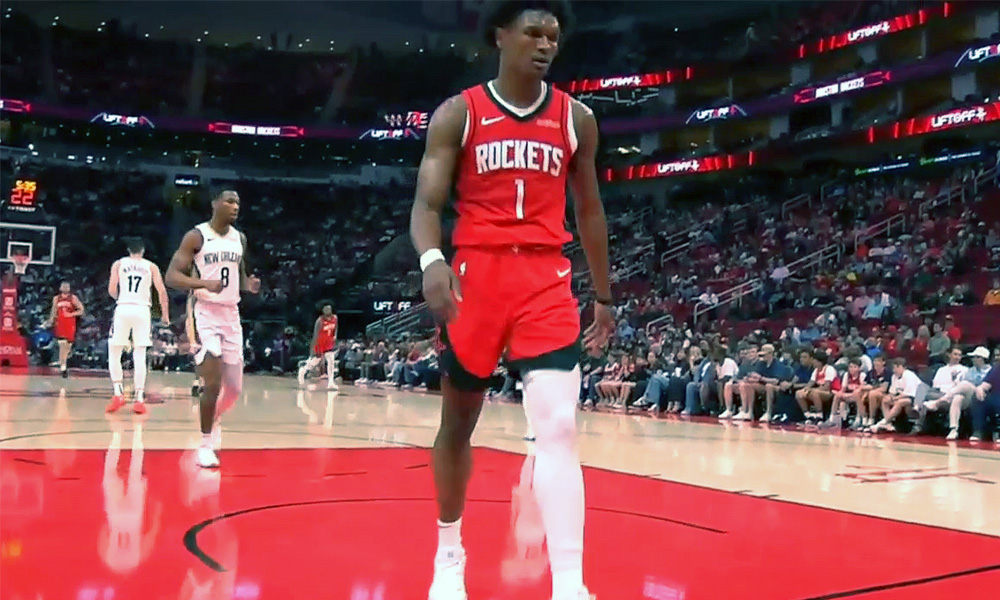
Rockets young star Amen Thompson will have his ankle injury re-evaluated in one week, according to Ime Udoka.
Thompson had an MRI on Sunday and the Rockets coach confirmed all imaging (X-ray, MRI) was negative.
“Just some swelling and pain, obviously,” said Udoka.
If you listen to Udoka, you can tell he knows how special Amen is to this team. He said the Rockets are missing a lot by not having him out there.
“Obviously, the things he does you can’t replicate,” said Udoka. “[Amen is] a guy that plays every position for us. When one goes down, he runs the point. If another is out, he runs the four.”
Amen is one of the best defensive players in the game, and as a one-on-one defender of guards/wings, he might already be the best in the league in just his second season. He’s holding his opponents to 40.5% shooting from the field, tops in the league.
“He’s a very unique defensive player,” said Udoka. “We got some guys that do some great things there, but I like to put him and Dillon on the best two usually, night to night. You got Tari and that’s a luxury as well, but the way he goes about it is different. His athleticism, size, speed, strength, shotblocking ability, steals… he’s all over the place.”
“Hard to replicate for sure.”
Amen injured his ankle late Saturday night in a blowout win against the Pelicans, but the unfortunate part was he probably should not have been on the floor in the first place.
The Rockets left Amen Thompson in the game in a blowout to get one more rebound for a triple-double and he just got injured. He's heading to the locker room with a limp. https://t.co/UBtrEpgWuU pic.twitter.com/D8GeKP8sQk
— ClutchFans (@clutchfans) March 9, 2025
The Rockets had built well over a 30-point lead by early fourth quarter. Jalen Green was able to rest the entire fourth. Alperen Sengun came out of the game with 7-8 minutes left while Dillon Brooks and Tari Eason came out with 6:00 left. But Thompson, who had posted an insane +39 on-off number, remained in the game because he was one rebound shy of a triple-double with 15 points, 11 assists and nine rebounds.
Udoka addressed that decision on Monday before the game against Orlando.
“What I typically don’t do is wholesale substitutions,” said Udoka of the decision to keep Amen in the game. “Albeit 30[-point lead] at six minutes [left] is different than losing to Minnesota, a 16-point lead with four minutes [left].”
“I’ve seen it go both ways in the past. You take out guys too early and have to bring starters back, and vice versa.”
Thompson has played in 60 games this season, five short of being eligible for postseason awards. He absolutely should be up for an All-Defensive nod this season so keep an eye on him getting back in time for that. He would need to return to action no later than April 4th for the game against the OKC Thunder in order to play enough games to be eligible.
Houston Rockets
How the Kyrie Irving Injury Impacts Rockets
Houston’s draft positioning and offseason plans could be impacted by Dallas
Published
4 months agoon
March 4, 2025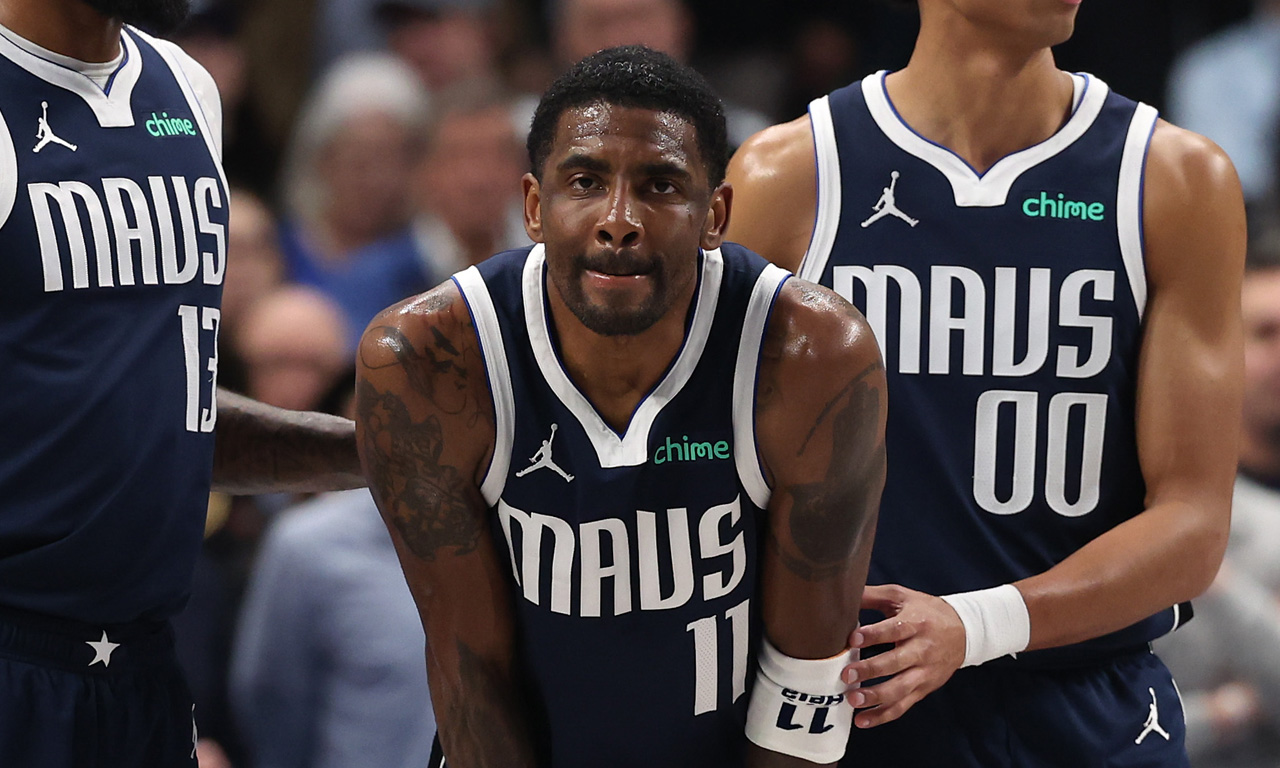
Dallas Mavericks guard Kyrie Irving was injured Monday night and the news dropped on Tuesday that the knee injury is serious — a torn ACL in his left knee that will end his season and a good portion of next season as well.
Brutal. I can’t think of an NBA team that imploded faster than the Dallas Mavericks.
You trade away a 25-year-old phenom who just hoisted you on his back en route to the NBA Finals a year ago. You cashed in that golden ticket to go all-in on a trio of aging stars in Kyrie, Anthony Davis, and Klay Thompson.
Bold strategy, Nico. Let’s see if it pays off.
(Narrator: It’s not paying off.)
The Mavericks had some interesting potential this year and maybe the next couple of years once everyone was healthy, but now? Their star guard is likely out until the calendar year 2026 and Klay and AD aren’t getting any younger nor more durable. The Mavericks may have actually swapped their future for a present that never arrives — and Dallas GM Nico Harrison has to be feeling overwhelming pressure right now.
So how does this impact the Rockets?
For starters, Houston has a game remaining on the schedule against Dallas on March 14th at Toyota Center — Davis may or may not be back for that game.
More importantly, Dallas is the 10th seed in the West at the moment, just 3.5 games ahead of the Phoenix Suns (11th seed). The Rockets control Phoenix’s first-round pick unprotected this season via a swap. We need as many West teams as possible ahead of Phoenix to keep them out of the play-in/playoffs and to push them as deep into the lotto as possible.
This complicates that. Phoenix’s remaining schedule is the toughest in the NBA by a good margin, with plenty of games left against the league’s best teams, so it still looks promising overall — but we’re talking about Kevin Durant, Devin Booker and Bradley Beal. They can still get hot at the right time while Dallas may struggle.
So keep a close eye on that. The good news is the Portland Trail Blazers are one of the hottest teams in the league and they are (shockingly) nipping at the Arizona squad’s heels.
Taking a look ahead to the offseason, the Kevin Durant Pursuit will be big.
This one is a little more complicated for Houston. The Rockets really want Devin Booker but, as of now, the Phoenix plan appears to be to trade KD this offseason and retool around Booker. The Rockets will have interest in Durant but they’re not going to sell the farm (prospects and all the picks) for a 37-year old like they would for Booker.
Three teams that I’ve heard a lot about from Rockets circles that will be in the mix are Houston, Minnesota and Dallas — Timberwolves and Mavericks have been considered the main competition. But, a lot of this will depend on Durant himself and where he wants to play at this stage of his career.
Keep in mind also, if the Suns are “retooling” around Booker and Beal (holding the no-trade clause), then they could be placing a higher priority on win-now players over the return of their own draft assets. The Rockets definitely have the best assets overall to offer up in any trade package between those three teams, but if Phoenix does prefer finding the right ready-to-win players around Booker/Beal, that gives Dallas and Minnesota a real chance.
This injury “may” take Dallas out of the equation, and they are/were definitely a contender for KD’s services given his past relationship with Kyrie and the way Dallas was positioned to win right now. Does KD at his age want to wait for Kyrie to be healthy?
And one last friendly reminder: The Rockets control that Dallas 2029 first (unprotected).
Houston Rockets
Rockets Sign David Roddy to Two-Way Contract
Former first-round pick has played with the Grizzlies, Suns and Hawks
Published
4 months agoon
March 3, 2025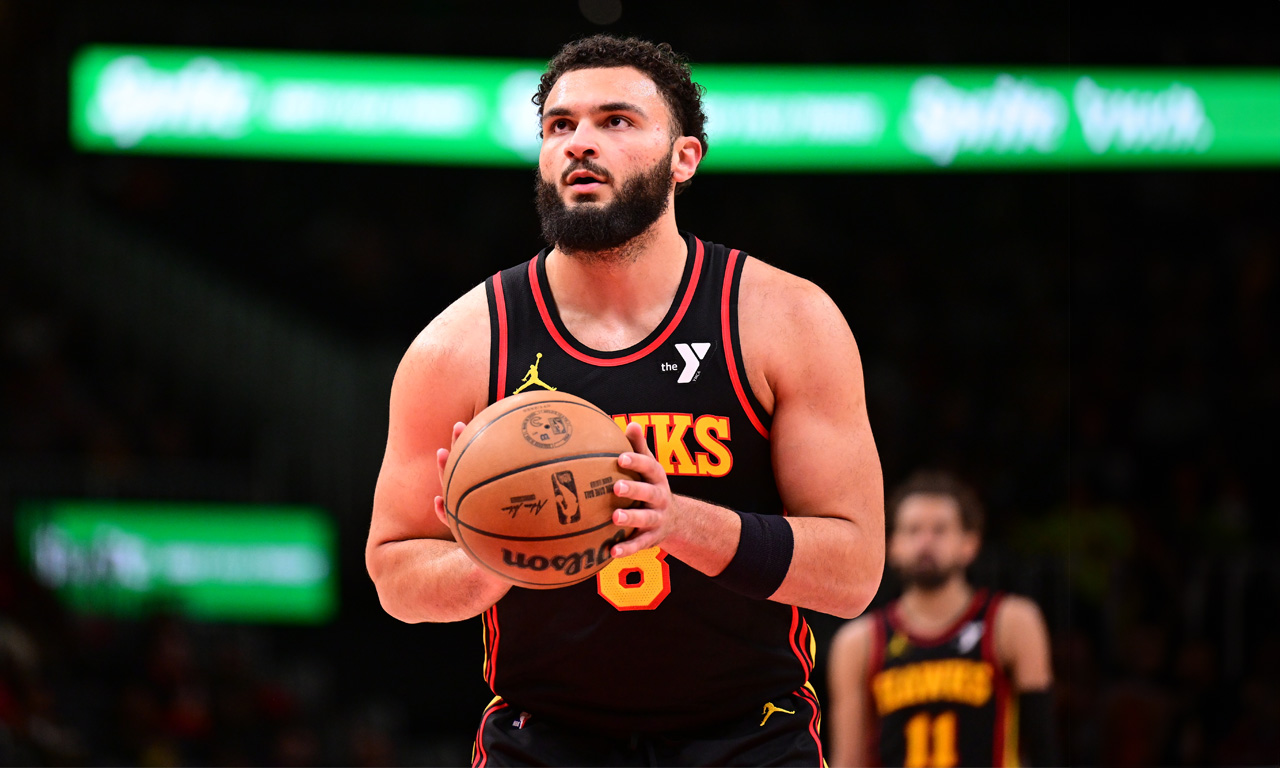
The Rockets made a move on Monday, signing former first-round pick David Roddy to a two-way contract.
The two-way spot opened up after the front office signed Jeenathan Williams to a standard four-year, $8.2 million contract (with friendly team options all along the way).
Roddy is 6-foot-5 and 250+ pounds but sports a 6-foot-11 wingspan. He was taken with the 23rd pick in the first round of the 2022 NBA Draft — six selections after the Rockets drafted Tari Eason. A standout in college, Roddy averaged 19.2 points, 7.5 rebounds, 2.9 assists, 1.2 steals, and 1.1 blocks per game during his junior season at Colorado State.
Roddy, who turns 24 later this month, is a physical player who can play multiple positions. He’s a solid rebounder for his size/position. He has played in 165 games over three seasons with the Grizzlies, Suns, Hawks and most recently Sixers, averaging 6.2 points and 2.9 rebounds per game.
The guard/forward has not shown efficient shooting, however — he’s a career 30.5% three-point shooter and just 68.4% from the line. His defense is better inside than out.
Ultimately, it will be those two things — three-point shooting and defense — that will determine his chances of carving out a consistent role in the league.
All in all, it’s a low-risk signing and the Rockets get a look at a prospect that fits their age timeline.
Houston Rockets
Houston a potential landing spot for Ben Simmons post-buyout?
Published
5 months agoon
February 6, 2025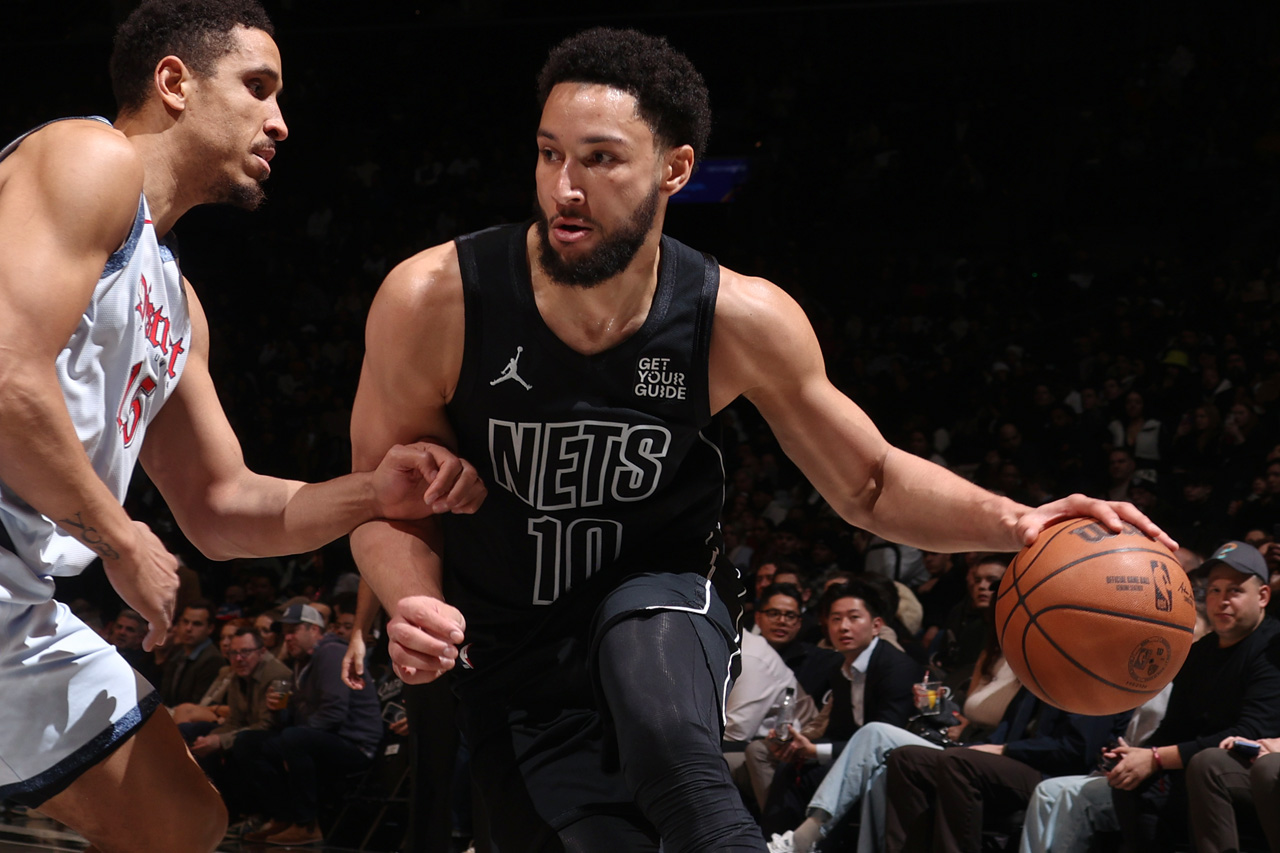
ESPN NBA analyst Brian Windhorst said on Thursday’s NBA Trade Deadline show that Brooklyn Nets forward Ben Simmons is working on a buyout and the Houston Rockets is a potential landing spot for him.
“Cleveland and Houston are two situations for Ben Simmons,” said Windhorst.
Brian Windhorst says the Cavaliers and Rockets are buyout locations for Ben Simmons.
Thoughts? pic.twitter.com/7ly4mvmxr5
— ClutchFans (@clutchfans) February 6, 2025
Advertisement
Rockets coach Ime Udoka was an assistant coach in Philadelphia in 2019-20 when Simmons was with the Sixers, before injuries took a significant toll. In fact, Udoka, when speaking about Amen Thompson earlier this season, brought up some comparisons to Simmons.
“The skill set is there, and it’s something that’s unique with his speed, athleticism, size, passing ability, and all those things,” said Udoka of Thompson. “I coached somebody, Ben Simmons, who had similar traits… as far as size and ability to push the pace, and find guys and finish. There are some similarities there.”
Both Thompson and Simmons are known for their elite athleticism, defensive versatility, and ability to create opportunities in transition.
However, can Simmons help the Rockets today? That’s the tough question.
Simmons has played in 33 games this season, averaging 6.2 points, 6.9 assists, 5.2 rebounds, 0.8 steals and 0.5 blocks in 25 minutes a night. He does not shoot threes (like, at all) — he has only attempted two threes in the past three seasons combined.
Ideally, he does not play in front of your young forwards of Amen, Tari Eason and Jabari Smith Jr. and on that basis alone, I think I would pass. But, Ime loves defensive dogs and he could use some extra ballhandling on the roster. You can see that there’s little in the way of offensive organization when Fred VanVleet is out.
There would be a comical full circle moment though if the Rockets did sign Ben Simmons, considering the Rockets were heavily criticized for trading James Harden in 2021 to Brooklyn instead of to Philadelphia for Simmons. The Rockets clearly made the right choice there.

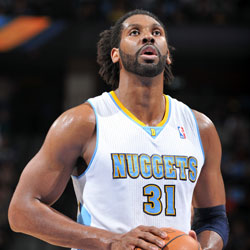

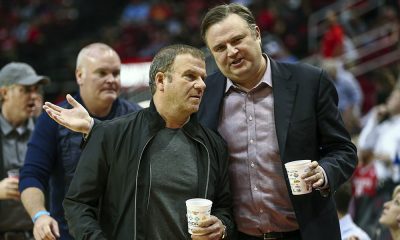
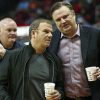
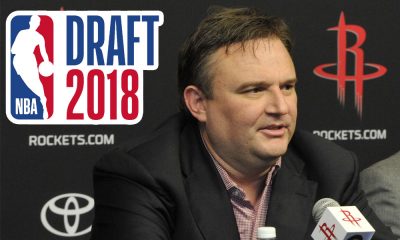
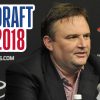
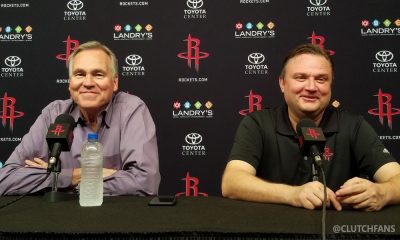
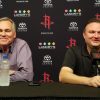
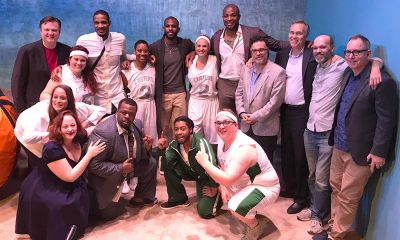

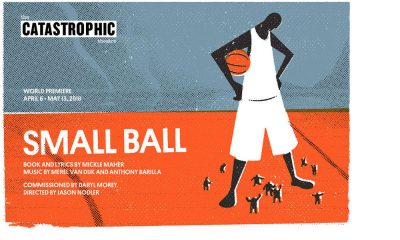
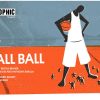
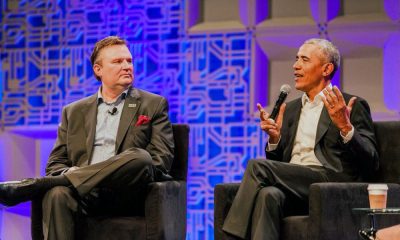

Pingback: Houston Rockets Salary Cap Update | Houston Rockets Blog | ClutchFans